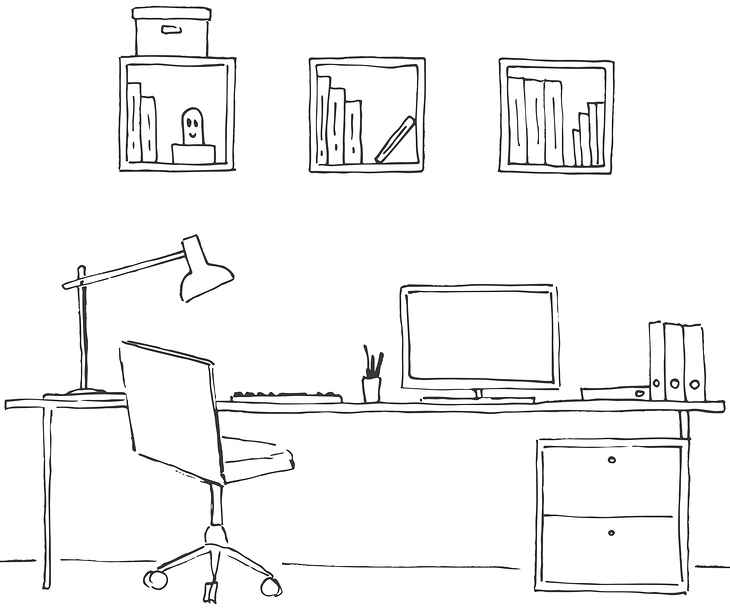You are a professional woman, you have worked hard to get into the company or job role you really wanted and you like to wear short skirts and plunging necklines.
What does that say about you as a woman? 
Many of us can be forgiven for thinking that she is using her sex appeal to get noticed or, she’s challenging the establishment by being anti-conservative in her dress or, simply that is her fashion statement.
A recent study undertaken by Karen Pine Psychology Professor at the University of Hertfordshire shows that women who wear provocative clothing at work are more likely to be seen as incompetent than those that dress conservatively by other females.
The study sought to examine how minor changes to female office clothing affect the attitude and judgements of competency by other UK females.
Of the 144 participants aged between 18-59, 90 were employed in a range of roles from nursery assistant, teacher, HR Manager and personal assistant; the other 54 were female students.
Participants were asked to rate images of faceless females using six criteria; intelligence, confidence, trustworthiness, responsibility, authority and organisation.
The dress style was conservative but altered slightly by skirt length and the number of buttons unfastened on a blouse.
I asked Karen what was the point of the research:
‘we have carried out research previously that showed how first impressions created by clothing can be very powerful and we wanted to explore the consequences of this particularly for women in the workplace’.
What can women learn from this research?
In offices up and down the country there will be the ‘woman’ whose wonderful sense of style and dress sense, the co-ordinated handbags and shoes leave us feeling somewhat frumpy and bewildered in her Armani wake.
 Think Meryl Streep in The Devil Wears Prada and Ann Hathaway’s student preppy dress style when she turns up the first day to work as P.A. to Miranda. ( a la Streep)
Think Meryl Streep in The Devil Wears Prada and Ann Hathaway’s student preppy dress style when she turns up the first day to work as P.A. to Miranda. ( a la Streep)
Watching that film makes me wish I had the budget and the wardrobe to match.
Can dress really have an effect on how we view people?
Are we really that fickle to presume that because a receptionist wears a low neckline she must be flirty?
Can what we wear impact our career prospects and how we are received by both men and women in the workplace?
According to Pine that is exactly what it does, first impressions really do count and can make a difference in how we engage and respond with that person.
No woman wants to admit that they are jealous of another woman, or, that they are intimidated by a co-worker who is super efficient and has the perfect manicure without a hair out of place because we are already working hard to make sure that we are taken seriously.
Can wearing a shorter skirt and a lower neckline imply that we don’t take our own job seriously enough to dress the part or is our inner self wanting to express what and who we are by the way we dress.
The research by Pine suggests that actually what we wear really does count and fundamentally has an impact on the way we are perceived.
Professionally I am very conscious of what I wear particularly if I am meeting with women, I find myself dressing down because I worry that what I wear might be seen as too dressy or expensive.
People then view you as ‘who does she think she is?’
We are what we wear?
There is an argument that suggests that what we wear determines how we see that person, the assumptions we make about what ‘she’ wears, her style and what her life must be outside of work is based on little more than the Prada handbags and matching shoes she so lovingly co-ordinates to wear to the office.
We no longer see that co-worker or customer as a person or a woman but as competition rather than taking a long look at ourselves and making changes that can enhance our attributes for the better.
We compare ourselves to work associates, actresses and pop stars and what to be like them?
Often our style is better than we think and comparing ourselves diminishes what we really do have going for us.
The phrase ‘dress for the job you want, not the job you have’ has a real truth about it.
How you look at work is essential to make lasting impressions but the actual work you do is far more important than how you are graded by what you wear.
In which case the research done by the University of Hertfordshire holds water, what we wear does have an effect on our competency and how we are perceived by work colleagues.
What do you think?
Are you bothered about what people think of your business dress?
Does it really matter how we look at work?
Is our competency on the job more important than business dress?

